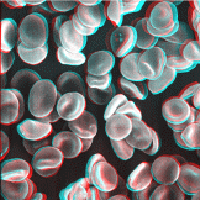Article
Genomic Testing to Help ID Esophageal Cancer Patients
Author(s):
Research recently published in the Journal of Molecular Diagnostics reveals a new next-generation sequencing (NGS) test to detect genomic mutations in precarious esophageal tissue – potentially improving early detection in individuals with Barrett's esophagus (BE).

Research recently published in the Journal of Molecular Diagnostics reveals a new next-generation sequencing (NGS) test to detect genomic mutations in precarious esophageal tissue — potentially improving early detection in individuals with Barrett’s esophagus (BE).
While periodic cancer monitoring has long been recommended for BE patients, these exams often fail to identify pre-cancerous dysplasia and other early cancers.
Antonia Sepulveda, MD, PhD, professor of Pathology and Cell Biology, Vice Chair, Translational Research, director of the Division of Gastrointestinal Pathology, Columbia University College of Physicians and Surgeons, New York, NY, and colleagues tested formalin-fixed, paraffin-embedded (FFPE) tissue.
Sepulveda analyzed the FFPE from 13 “non-progressors,” BE patients who never manifested dysplasia or esophageal adenocarcinoma (EAC), 15 “progressors,” patients who had developed high-grade dysplasia (HGD) and EAC, and control samples without traces of Barrett’s intestinal metaplasia.
The researchers found mutations in 75% of cases among the progressors compared to 0 cases of mutations in non-progressor patients.
The team also noted the tumor suppressor TP53 was the most prevalent mutated gene in the BE progressor group.
There is undoubtedly a direct correlation between earlier cancer detection and longer survival making it necessary to consistently search for effective early detection methods.
Sepulveda commented, “The ability to detect mutations in non-neoplastic mucosa, quantitatively and with high detection sensitivity, makes it possible to NGS mutational testing in the early detection and surveillance of patients who develop BE.”




